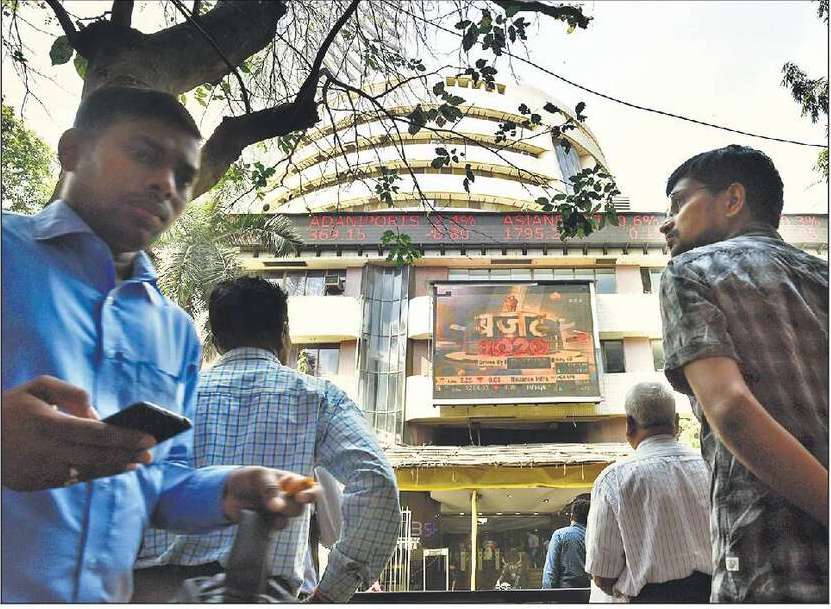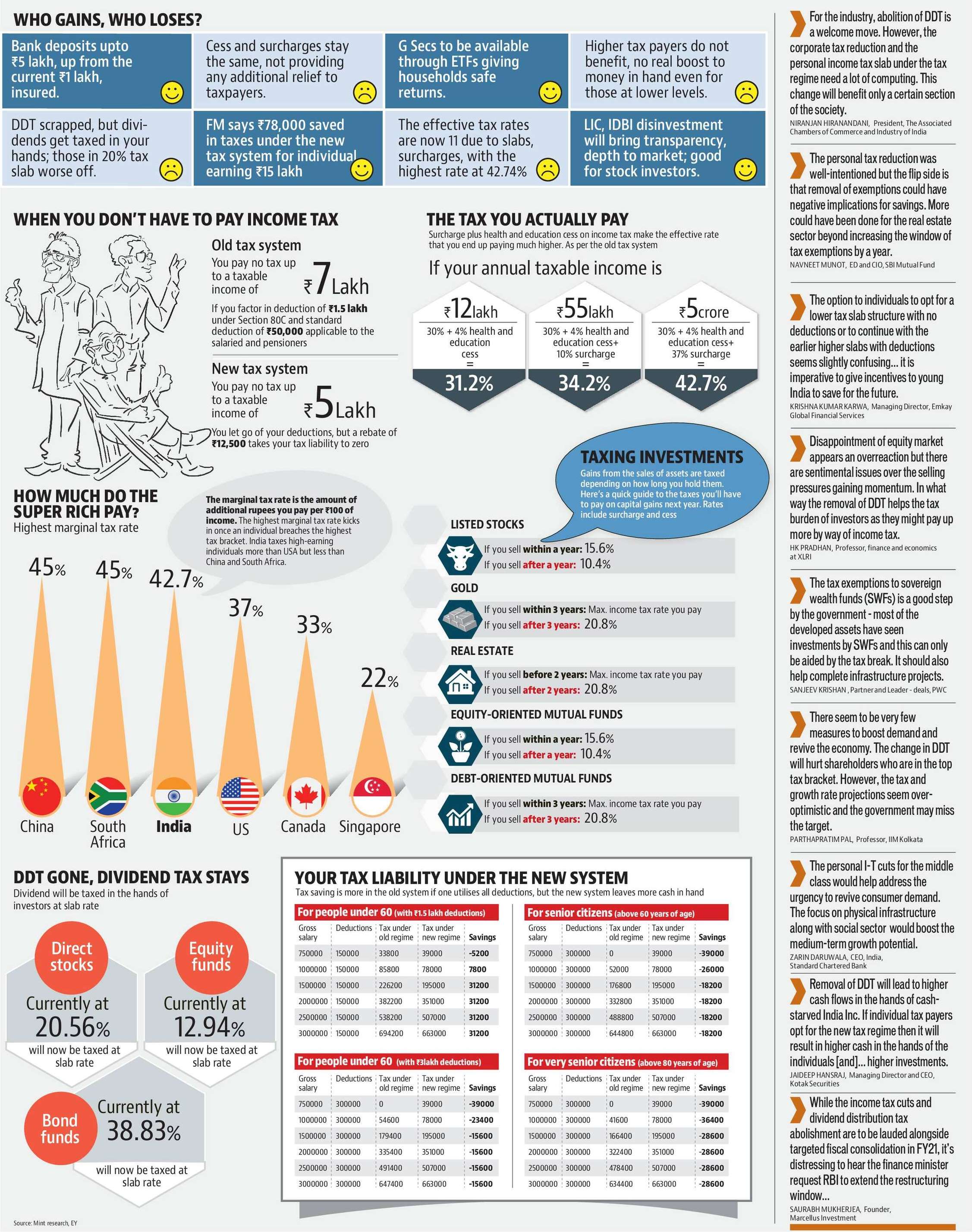 People watch Sensex update outside BSE in Mumbai on Saturday. Anshuman Poyrekar/HT Photo
People watch Sensex update outside BSE in Mumbai on Saturday. Anshuman Poyrekar/HT Photo
Gireesh Chandra Prasad
letters@hindustantimes.com
New Delhi : Individual taxpayers received major relief with Union finance minister Nirmala Sitharaman on Saturday offering a sharp reduction in tax rates for those who do not avail of any exemptions.
In line with the proposed new simplified personal income tax regime, the tax rate on income in the range of ₹5-7.5 lakh per year will be halved to 10%.
“Anyone who is earning between ₹5 lakh to ₹7.5 lakh (a year) today pays 20% in the current regime. We are now making it 10%,” the minister said in her Budget speech. Those earning up to ₹5 lakh are exempted in the existing regime, which will continue to be the case in the new optional regime too.
The minister said income in the range of ₹7.5-10 lakh will attract 15% tax in the new regime, down from the prevailing 20%.
However, the new income tax system is optional and a taxpayer can choose to remain in the existing regime with exemptions and deductions.
“The income between ₹10-12.5 lakh is presently taxed at 30%. That is now being brought down to 20%. The income between ₹12.5-15 lakh will be taxed at 25% only, down from the current 30%. Income above 15 lakh will continue to be taxed at 30%, but no exemptions at all,” Sitharaman said.
The rate cut announced in the Union Budget is expected to cost the exchequer about ₹40,000 crore in annual revenue, the minister said.
The minister said the idea was to reform personal income taxation, which is currently “riddled with numerous exemptions.”
She said that the new simplified tax regime is being brought in to provide significant relief in individual taxation where the tax rate will be significantly lower for those who forego exemptions.
As per finance ministry’s calculations, a person earning ₹15 lakh a year and not availing of any deductions whatsoever, the benefit of tax cut would be ₹78,000 a year under the new optional tax regime.
The tax reforms proposed in the Budget will stimulate growth, simplify the tax structure, improve ease of living and reduce litigation, the minister said.
At present, those below the age of 60 do not have to pay tax for earning up to ₹2.5 lakh a year. In this age group, those who have taxable income above ₹5 lakh, income in the range of ₹2.5 lakh to ₹5 lakh is taxed at 5% plus a cess at 4%. Income between ₹5 lakh and ₹10 lakh is taxed at 20% and income above ₹10 lakh at 30% plus cess.
Income above ₹50 lakh also attracts a surcharge in four slabs, making the income tax regime more progressive. Older people get relief in the basic exemption limit.
As per the Budget document, an individual taxpayer opting for the new tax regime will not be entitled for deduction under 80C of the Income Tax.
Section 80C provides deduction for contribution towards insurance premium, deferred annuity, provident fund and certain type of shares.
Taxpayer will also have to forego deduction under 80CCC (contribution towards certain pension fund), Section 80D (health insurance), 80E (interest on loan for higher education), 80EE (interest on loan taken for residential property), 80EEB (purchase of electric vehicle), 80G (donation to charitable institutions), and 80G (rent paid).
Besides, a taxpayer opting for the new scheme will not get tax benefit for leave travel concession (LTC), allowances for income of minors, and certain allowances of MPs/MLAs.
The tax benefit will not be available in respect free food and beverages through vouchers provided to employees.
However, certain deductions are proposed to be retained in the new regime, like conveyance allowance for meeting expenses in performance of duty and allowance for travel on tour and transfers.
“The Union Budget announced by Finance Minister focused on tweaking of personal tax rates in a bid to boost purchasing power and income of individuals. However, the introduction of new regime versus the old regime wherein the overall taxes have been reduced by scrapping of the major deductions such as LTA, 80C and HRA may not benefit the common man but may burn a hole in his pocket,” says Nitin Baijal, director at Deloitte.
Tax experts say ₹78,000 is the maximum savings for an individual shifting to the new regime. However, an individual may actually end up paying more tax on shifting to the new regime if the deduction and exemptions foregone are more than the savings under the new regime. Hence, it may require professional help.


